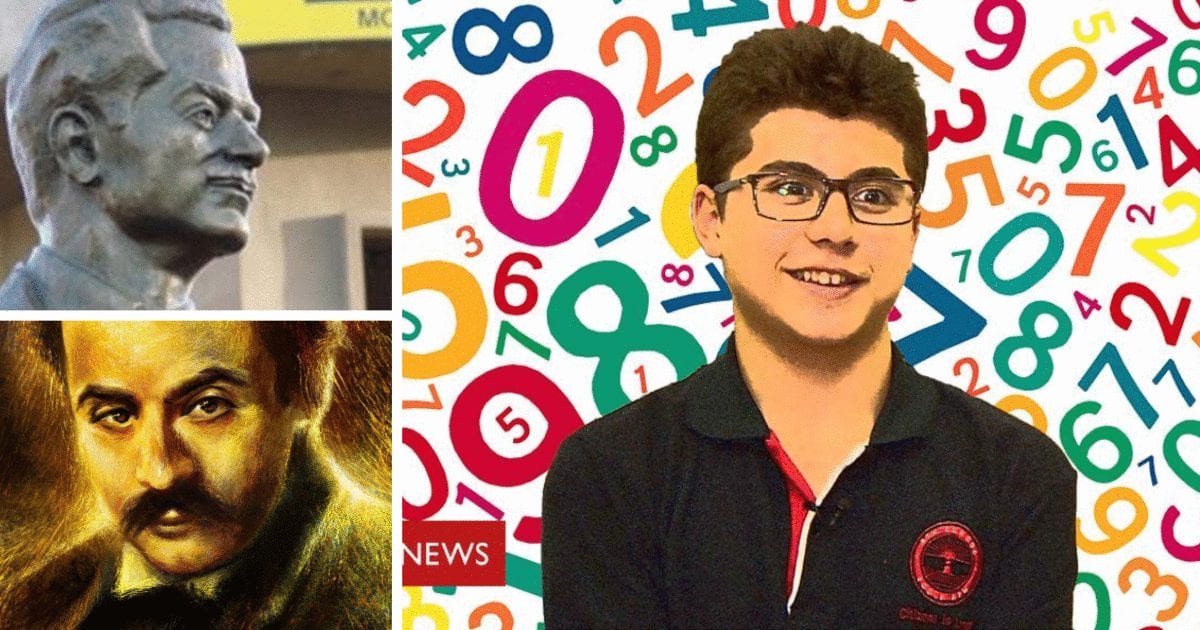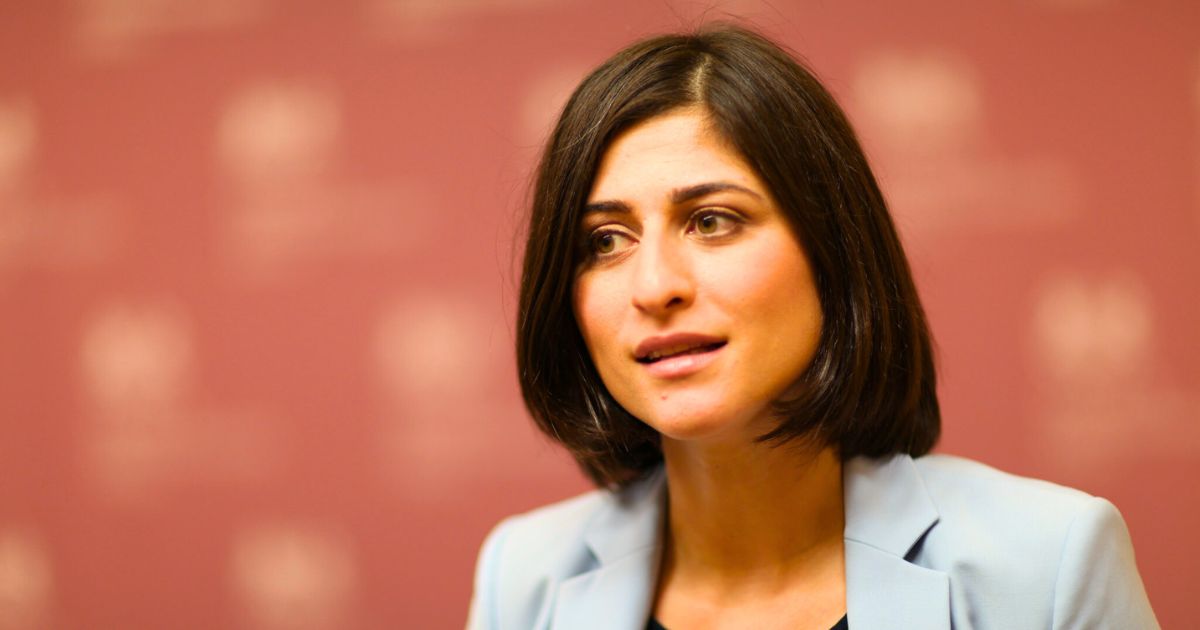On March 14th of 1879, quantum physicist and all-around genius Albert Einstein came to the world. Sixty-three years later, British theoretician and cosmologist Stephen Hawking was born.
So, we found it fitting to bring to you today 6 Lebanese geniuses that have graced the world with their intellect and talent; the newest youngest included.
#1 Hassan Kamel Al-Sabbah
Born August 1894 in Nabatieh, South of Lebanon, Al-Sabbah was an electronics’ research engineer, inventor, and mathematician of high caliber who studied and taught at the American University of Beirut (AUB).
He later enrolled at the Massachusetts Institute of Technology (MIT) in the United States where he engaged in mathematical and experimental research. He went on to teach mathematics at MIT as well as at the Imperial College of Damascus in Syria.
Al-Sabbah has over 40 patents in his name. Not only did he discover the processes of nuclear fission, but he was also the first to invent a television powered by sunlight.
It is even speculated that Al-Sabbah and Tesla, not Edison, were the fathers of modern electricity.
The ingenuity of Al-Sabbah was so remarkable at such a young age that he was dubbed as “the youngest genius of the Electrical Association.”
After having worked with Al-Sabbah, the principal inventor and designer of the GPS, Roger Lee Easton, had this to say about him: “Sabbah was the only one who dared discuss, criticize, and clarify Einstein theory on general relativity… .”
#2 Michel Temer
Born to lower-class Lebanese immigrants to Brazil, Michel Temer was the youngest of eight siblings and had a difficult life story from the very beginning.
Like many first-generation immigrants, the Temers took to labor work, setting up a small farm and shop in a small town in the state of São Paulo. With such a large family, the older siblings had to quit school and work to contribute their support.
Intelligence was such a marker of the family that, despite lacking years of formal education, the oldest brother ran away in his mid-teens and made it through the exams of medical school. Unfortunately, his dreams had to be cut short by the family summoning him back to help raise the younger ones.
The pressure born of the sacrifice of his oldest brother pushed Michel Temer to study hard at university and get involved in university politics.
A talented graduate, he began working in the legal field. By 1983, he had ascended to the position of attorney general of São Paulo to be then appointed the following year Secretary of Public Security for the city.
By then, Temer had become a renowned expert and mastermind in Constitutional Law. He played a major role in rebuilding Brazil’s democracy upon the fall of the military regime. After two decades of work in politics, Temer was called upon to play his most prominent role yet: The Vice President of Brazil.
#3 Gibran Khalil Gibran
There are very few lists of Lebanese high-achievers on which Gibran Khalil Gibran is not a feature… and rightfully so. Poet, artist, philosopher, and writer-extraordinaire Gibran is a native of the northern Lebanese mountain village of Bsharri.
Despite being denied formal schooling during the first twelve years of his life, Gibran had always a craving thirst for knowledge and art.
Early in his life, the artistic genius displayed a passion for drawing. If there was no paper in the house, he would just go outside and spend hours sketching on fresh snow.
At four years old, he would dig some holes in the ground and carefully plant tiny scraps of paper, hoping that the summer harvest would provide him with a plentiful supply of paper to draw.
In 1919, the artistic success of Gibran – often compared to the great poet-painter William Blake – reached its zenith with the publication by Alfred Knopf of a volume entitled Twenty Drawings. Concurrently, Gibran also became founder-president of a literary society called Al-Rabita al Qualamiya (The Pen-bond Society).
The original members of Al-Rabita were all leading Arab-American writers, and only few would contest his status as the greatest of the Arab-Literacy Romantics and the father of a 20th-century Romantic tradition.
His success as a writer, in both the English and Arabic languages, gave him a platform to express views that he felt his fellows needed to hear.
His wisdom and insight into the world were so developed that he even predicted the hold of the West over the Eastern cultures prior to its manifestation.
In the early 1920s, his articles in his native language were dominated by the message that the developing Arab nations should “adopt only the constructive aspects of Western society” as he feared that “The West is now a machine, and everything in it is tied to the machine.”
#4 Assi Al-Rahbani
We are covering everything. With over 200 compositions, songs, plays and musicals, Assi Al-Rahbani is nothing short of a melodic genius. He was part of a very successful golden trio, consisting of himself, his brother Marwan, and his future wife and iconic singer Fairouz.
Originally from Rahbe, a simple town in the North of Lebanon, the Rahbani Brothers were not involved in music back in their hometown. Their connection to music, if any, consisted of occasionally helping their local priest with the arrangement of the vocals and instrumentation at church.
It was only when Assi obtained a job as a paperboy at the Near East Radio channel, and his connection with the supervisor of the channel, Halim El-Roumi, that the musical career of the Rahbanis began.
Assi was also working with his brother Mansour as police officers in Beirut. Together, they composed their own jingle and proposed it to Halim El-Roumi, the father of singer Majida El-Roumi.
Mr. El-Roumi was so impressed with their creativity that he went broadcasting their jingles live. The perfectionism of the brothers became one of their trademarks as they demanded a lot of time from the singers in the rehearsal, preparation, and efforts in order to yield maximal results.
The Rahbanis, led by Assi, are known to have impacted significantly the Lebanese culture, and the life of many. They launched the careers of numerous artists who initially performed as backup singers for Fairuz or acted in their musicals: Georgette Sayegh, Najat Al Saghira, Sabah, Wadih El Safi, Ronza, and Huda, the younger sister of Fairuz.
On June 26, 1986, in the midst of the raging civil war, Assi El-Rahbani passed away after several weeks in a coma. The whole nation went into mourning. The warring factions of the city declared at once a cease-fire and opened the checkpoints to make way for his funeral procession.
One matter all opposing factions could agree on back then was the honor due to the most outstanding music genius in our history: Assi El-Rahbani.
#5 Mohammad Al-Mir
Who said you have to be an adult to be ranked on our list? At the mere age of 11, mathematics prodigy and kid-genius Mohammad Al-Mir received a record score of 1400 over 1500 in an international junior mental calculation competition in Germany.
Not only did Al- Mir beat dozens of participants from more than 40 countries, but he also outpaced the second-place competitor by 300 points.
Today, the Tripoli-born genius is achieving his dreams and those of our nation.
#6 Sinar Zaito
We kept the best for last. 11-year-old Sinar Zaito is a certified genius. Interestingly enough, his genius mind would have gone unnoticed if it wasn’t for his obsession with Rubik cubes.
After teaching himself animation, Zaito began making short YouTube videos explaining scientific concepts such as the Fermi paradox, black holes, and how cells fight viruses.
At first, his interest in science seemed natural. After all, his father is a high-school physics teacher, and his mother is a mechanical engineer. But it was his fascination with the classic puzzle that led to a sudden blossoming of his math skills.
He delved into algorithms and advanced mathematical concepts on the internet, and within months, Zaito was doing math at a 12th-grade level.
However, that wasn’t enough to keep him occupied. Searching for a way for her son to continue his progress, his mother emailed the math department at AUB…
Today, Sinar is already learning analysis concepts generally taught to university students of advanced second-year mathematics.
His professors believe that by the time Zaito is 14 or 15, he will be ready to pursue a doctorate in the United States if he chooses to. Who knows what’s in store for this miraculous young Lebanese boy? We can expect the unexpected!


































